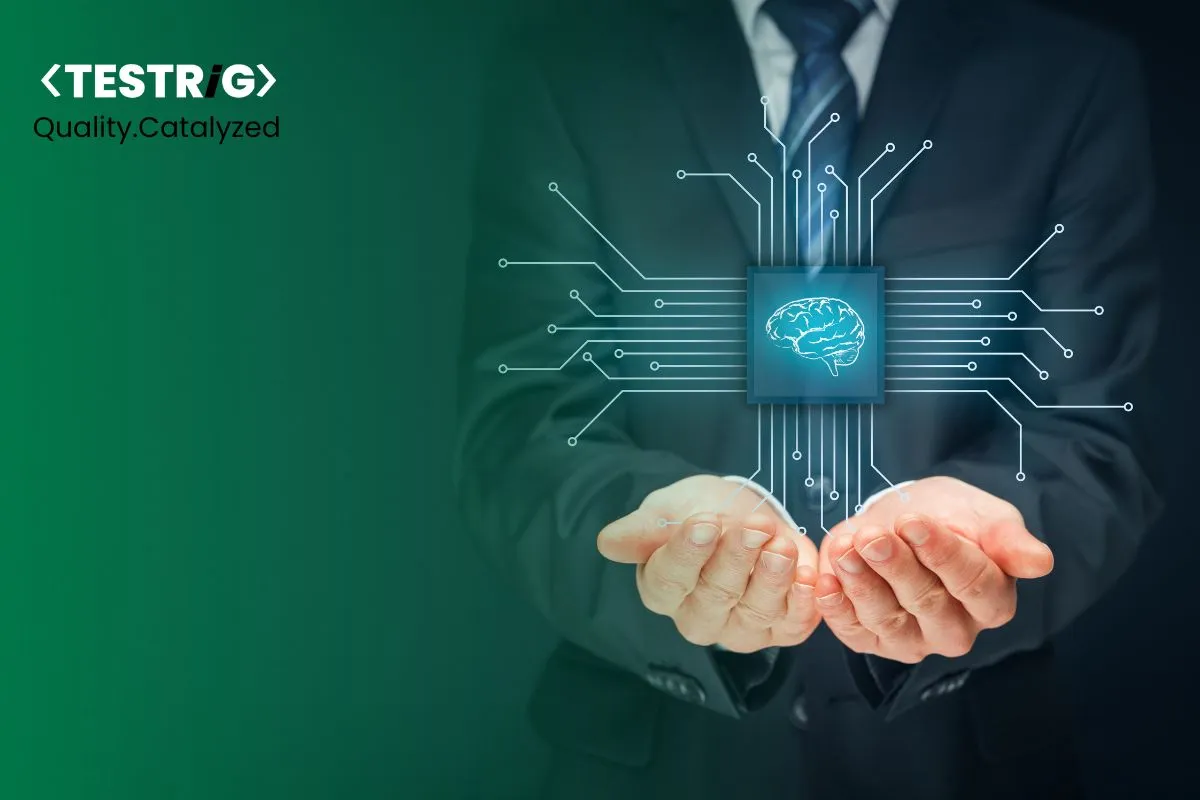
The cost of fixing a defect post-release is significantly higher than catching it during the development or testing phase. In fact, the National Institute of Standards and Technology (NIST) estimates that it is 30 times more expensive to fix a bug post-release.
This underscores the critical importance of efficient and effective software testing in today’s development landscape.
A staggering 70% of organizations struggle to keep pace with testing demands, according to a 2023 Tricentis study. This testing bottleneck creates a significant hurdle in the software development lifecycle, potentially delaying releases and jeopardizing software quality. Traditional testing methods, while crucial, can be time-consuming and prone to human error.
However, a new wave of innovation is emerging:
Artificial Intelligence (AI) is poised to revolutionize software testing, transforming it into a more efficient and accurate process.
Artificial Intelligence (AI) in software testing has become a game-changer in the testing arena. By leveraging machine learning algorithms and data analysis, AI is streamlining and optimizing the testing process. Fortunately, Artificial Intelligence (AI) is emerging as a powerful ally, transforming testing and ensuring software quality.
By leveraging Artificial Intelligence, software testing teams can unlock several key benefits;
Identifying Effective Test Scenarios: AI-powered algorithms can analyze vast amounts of code and historical testing data to identify the most critical test scenarios. Through techniques such as machine learning, AI can prioritize test cases based on factors such as code complexity, frequency of code changes, and potential impact on end-users. By focusing on high-risk areas, testing efforts become more targeted and efficient.
Identifying and Reducing Unwanted Test Steps: Traditional testing approaches often involve redundant or unnecessary test steps, leading to wasted time and resources. AI in software testing can streamline the process by automatically identifying and eliminating redundant test cases. By analyzing test coverage and code changes, AI algorithms can intelligently optimize test suites, ensuring maximum coverage with minimal redundancy.
Gathering Effective Test Data: Quality test data is essential for comprehensive testing. However, manually generating test data can be time-consuming and error prone. AI can assist in generating realistic test data by leveraging techniques such as data mining, pattern recognition, and synthetic data generation. By simulating various scenarios and edge cases, AI ensures that test data accurately reflects real-world conditions, enhancing the effectiveness of testing efforts.
Prioritizing Test Cases: Some have a higher impact on system functionality and user experience than others. AI can aid in prioritizing test cases by considering factors such as business priorities, customer feedback, and risk analysis. By dynamically adjusting test priorities based on changing requirements and feedback, AI ensures that resources are allocated to the most critical areas of the application.
Identifying Critical Areas of Application: Understanding the critical areas of an application is crucial for effective testing. AI-powered code analysis tools can identify potential vulnerabilities, performance bottlenecks, and security loopholes. By conducting static code analysis of the application’s source code and dynamic code instrumentation, AI algorithms pinpoint critical areas that require rigorous testing. This proactive approach helps in mitigating risks and ensuring the robustness of the application.
The Future of Testing: Human-AI Collaboration
AI is not here to replace human testers; rather, it empowers them to become strategic partners in the process. By automating repetitive tasks and providing valuable insights, AI frees up testers to focus on complex scenarios and creative problem-solving. This human-AI collaboration is paving the way for a future of software testing that is faster, more efficient, and delivers unparalleled quality.
Businesses Can Reap Significant Benefits From AI-Powered Testing
- Reduced testing costs: While initial setup may be expensive, AI automation testing can automate repetitive tasks and improve efficiency, potentially leading to significant cost savings in the long run.
- Improved Quality: More comprehensive and targeted testing ensures a higher quality final product.
- Enhanced User Experience: By identifying critical functionalities, AI helps deliver a seamless user experience.
- Faster Time to Market: Streamlined testing processes expedite software releases, allowing businesses to capitalize on market opportunities.
End Note;
AI based QA testing is revolutionizing the testing process, it is offering a compelling path towards efficiency, accuracy, and cost-effectiveness. By embracing this powerful technology, businesses can ensure high-quality software that delivers a superior user experience.
Team Testrig Technologies: Your Partner in AI-Powered Testing
At Team Testrig Technologies, we understand the critical role of testing in ensuring software success. We are at the forefront of AI testing services, and We can partner with you to leverage the power of artificial intelligence and software testing, ensuring your business stays at the forefront of technological advancement. Here’s how we can assist you:
- Customized Solutions: Tailored AI testing strategies for your unique needs.
- Advanced AI Tools: Leverage the latest AI based software testing tools and technology for efficient and effective testing.
- Enhanced Test Data: Generate realistic data sets for comprehensive testing.
- Expert Support: Our team guides you throughout the AI testing process.
Experience the power of AI testing firsthand. Schedule a consultation with Team Testrig Technologies today!


